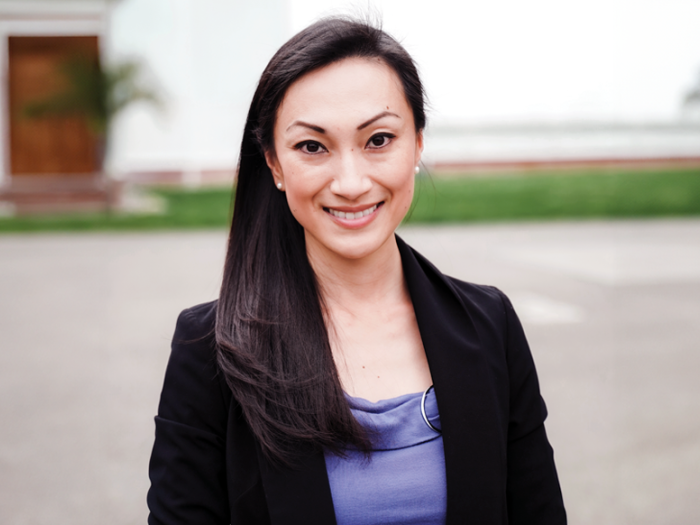
For 15 years, Steven Gay, M.D., professor of internal medicine, was dean of admissions for U-M Medical School. Since he ended his tenure in that position in 2021 to become interim associate dean for medical student education, he’s had time to reflect on the trends he witnessed and the ways the Medical School has risen to the challenge of attracting the leaders and best each year. He spoke with us about what makes U-M different and what it takes to get into medical school these days.
How is the U-M process for selecting incoming students different from other institutions?
I think what makes us unique is our definition of holistic review. For many places, what they will do to be “holistic” is choose seven or eight areas, besides test scores, and give points for how a student does in those areas. Then they total the points and offer admission to those above a certain threshold.
But we don’t use a point system because we might miss an extraordinary student. For example, take a student who is a tremendous researcher and produces three first-author publications before they get to medical school. They spend an exceptional amount of time to do that. That leaves less time for significant amounts of altruism, community building, etc., but the area that makes them unique and outstanding is their research. You don’t want to lose that student. They will be transformative in medicine.
You never want to see an absence of significant competencies that are important to your institution. But you should realize there are only so many hours in a day. Our process takes that into account.
Some alums see how accomplished current medical students are and say, “I could never get into medical school now.” What do you say to them?
I actually get a little upset when they say that, because I think they misunderstand the process. Much of who we are is informed by our alums. What it means to be a great physician in so many different arenas has been defined by the amazing things our alums have done. The process is designed to find people like them — people who have a commitment to making things better, who believe they should always strive to be the leaders and best, who believe they should have an impact in their communities, in society, and with individuals.
Our process works. If they applied today, we would find them.
In recent years, the majority of our incoming students have been women. Why do you think that is?
More women apply to medical school than men these days. I’m hopeful it is because they see exceptional opportunities without barriers in medicine.
My job as dean for admissions, when I had the honor of sitting in that role, was to bring the best 170 students to the U-M every year. That’s the goal. That is defined by their altruism, academic excellence, passion, curiosity, resilience, and adaptability. I don’t hear anything in there that defines them by gender, race, ability or disability, or anything else.
What are the changes you’ve witnessed in medical school admissions in recent years?
A long time ago, everyone thought all you needed were good grades, good scores, and you would be a good doctor. That’s far from the truth these days. Now you must be resilient, take on challenges, be creative in the face of incredible adversity, and continue to have a passion for caring for others, even when you’re having to make so many difficult decisions on their behalf, because you’re in the midst of a pandemic for example. To lead and serve, hand in hand, is what our graduates must do. It highlights very clearly a whole set of values and competencies that were not considered as essential in the past but are absolutely necessary to do this extraordinary thing — to care for patients, to find new knowledge, to be curious, and to change the world in a positive way.
What does it mean to be able to offer a scholarship to a student who is struggling financially?
As I said earlier, there are only so many hours in the day. If you’re having to work to support yourself, that’s time you cannot study, cannot care for your wellness, cannot explore other experiences that you may be passionate about. To relieve that burden is transformative. Contributing to scholarship funds is one of the extraordinary things our alums do for our students. It is so rare when individuals have the freedom to truly learn, explore, and understand, without restriction or other commitments. It’s one of those things that gives you an opportunity not only to be good but to be great.
What should prospective medical students look for in a medical school?
The most important thing for any student is to find a place that fits them. The cream always rises to the top. If you find a place where you’re supported and valued, where you’re taught with academic rigor, where you can explore what you’re passionate about and learn things you didn’t know you were passionate about, you will become an excellent physician.
What is the best thing an aspiring medical student can do to help their chances of being accepted?
They must truly show that they are finding things that will make them the best person they can be.
When students work to check every box — doing three months each of all these different things — the first question we’ll ask is, “What is important to you?” And the answer can’t be “getting into medical school.”
I’ve never heard a single medical student say, “I’d really love to be a halfway decent, fly-under-the-radar doctor when I grow up.” They all, early on, say, “I want to change the world.” Here at Michigan, we don’t want them to lose that possibility — or that ability.
We want to see students who show the insight and self-reflection and say, “This is why I want to go into medicine and why I see a place for myself here.” When we gain an understanding of your passions and commitments, then we know how we may be able to assist you to get there.
What was one of the biggest lessons of your tenure as dean of admissions?
Realizing that every single person around you has something that they can contribute, something that you will learn from and take joy in connecting with. It doesn’t matter someone’s level of education, how long they’ve been at an institution, or what their role is, everyone has a way of seeing and understanding this place that can help us be better.





